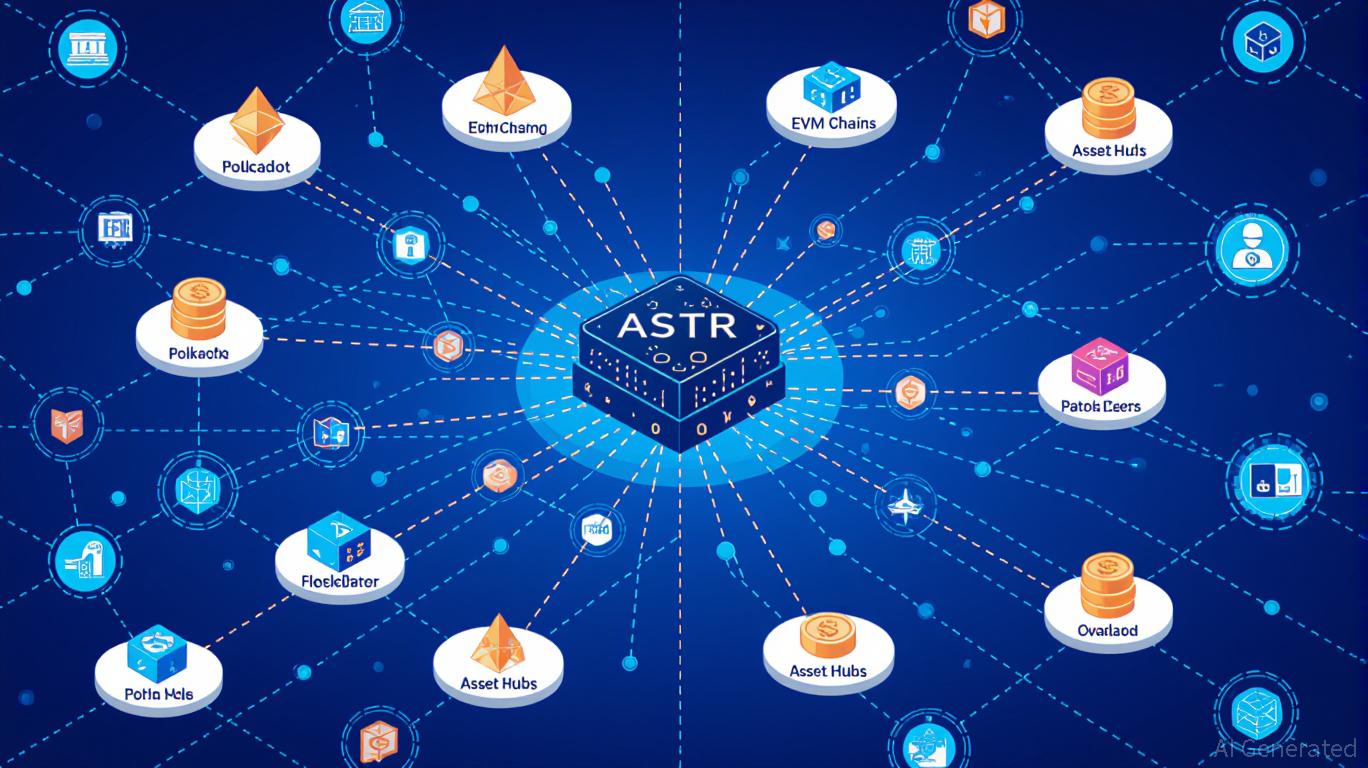COAI Token Fraud Unveiled and Its Impact on DeFi Safety: Evaluating Regulatory Preparedness and Shortcomings in Investor Safeguards within Developing Cryptocurrency Markets
- COAI token's 2025 collapse exposed DeFi vulnerabilities in emerging markets due to governance failures and regulatory ambiguity. - CLARITY Act's vague AI token definitions and U.S. regulators' conflicting classifications (securities vs. commodities) worsened market uncertainty. - Southeast Asia's crypto scams, including She Zhijiang's Myanmar operation, exploit weak governance and jurisdictional loopholes to defraud $10B annually. - IRS DeFi rules face legal challenges over privacy concerns, while platfo
Unclear Regulations and the CLARITY Act’s Mixed Impact
The proposed CLARITY Act made matters worse for the COAI token, leaving AI-related crypto projects in a state of legal uncertainty. Although the bill was intended to clarify what qualifies as an AI token, its ambiguous wording led to confusion, discouraged large investors, and increased market instability
At the same time, the Bank of England has moved quickly to update its stablecoin rules to match U.S. timelines, reflecting a worldwide effort to clarify regulations. Still, requirements for reserve audits and redemption processes—crucial for DeFi’s liquidity—remain controversial, as issuers find it difficult to meet compliance demands without sacrificing efficiency

Southeast Asia: Center of Scam Activity and Regulatory Shortcomings
Developing regions, especially Southeast Asia, have become major hubs for international crypto fraud. The U.S. Department of Justice (DOJ) launched the "Scam Center Strike Force" in 2025,
One notable example is She Zhijiang, a businessman born in China who was extradited to China in 2025 for operating a fraudulent compound in Myanmar’s Shwe Kokko region. His case highlights both the global reach of crypto scams and the gaps in enforcement: while authorities may shut down specific operations,
Investor Safeguards: Navigating Between Progress and Regulation
New DeFi rules from the IRS have led to court challenges, with blockchain supporters arguing that terms like "broker" and "trading front-end service" do not accurately reflect the decentralized nature of DeFi
Looking Ahead: Finding the Balance Between Progress and Protection
For DeFi to reach its full potential, regulators must take a more sophisticated approach. Developing economies need unified regulations to stop legal loopholes, while advanced markets should clarify definitions for AI tokens and stablecoins to minimize confusion. The downfall of the COAI token is a clear warning: without strong investor protections and international cooperation, the risks in DeFi will continue to overshadow its potential benefits.
Disclaimer: The content of this article solely reflects the author's opinion and does not represent the platform in any capacity. This article is not intended to serve as a reference for making investment decisions.
You may also like
ETH Price Flash-Crash below $3200: Next Support Sits at $2,800
Solar PLUS Forum 2026: Where Energy Innovation Meets Tokenization & Digital Infrastructure

ZK Atlas Enhancement: Accelerating Blockchain Expansion and Driving Institutional Participation in DeFi
- ZK Atlas Upgrade (Oct 2025) boosted blockchain scalability to 15,000+ TPS with $0.0001 per-transaction costs, enabling institutional DeFi adoption. - Modular ZKsync OS and ZK rollups reduced Ethereum gas fees by 90%, driving 30% stablecoin dominance in on-chain transactions. - Institutional TVL in ZK ecosystems hit $3.5B by 2025, with StarkNet tripling TVL and Zcash rising 23% amid U.S./EU regulatory clarity. - ZK token engagement surged 20% post-upgrade, attracting $15B in ETF inflows, as analysts predi

Astar (ASTR) Price Rally: Can Institutional Adoption of Blockchain Interoperability Sustain Long-Term Growth?
- Astar (ASTR) surged 40% in late 2025 as institutional adoption of its cross-chain interoperability infrastructure accelerated. - The integration of Plaza modular infrastructure and EVM compatibility streamlined asset management and bridged Polkadot with external networks. - Strategic partnerships with exchanges like Bitget and Japan-focused Web3 initiatives expanded ASTR's institutional reach and use cases. - Upcoming Startale App aims to simplify cross-chain interactions, positioning ASTR as a foundatio
